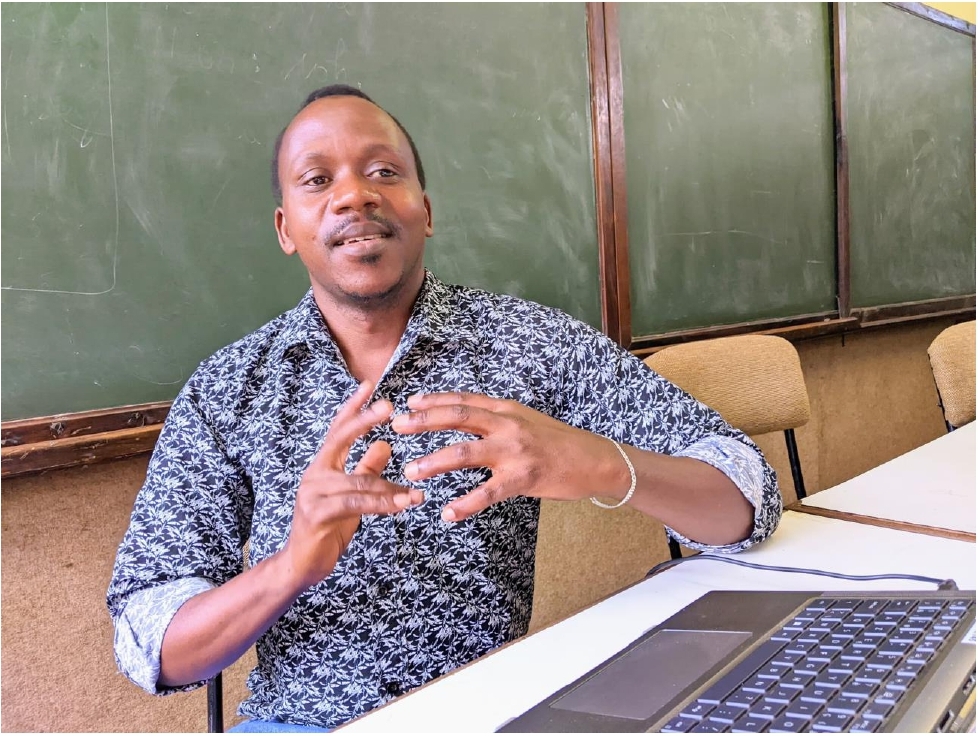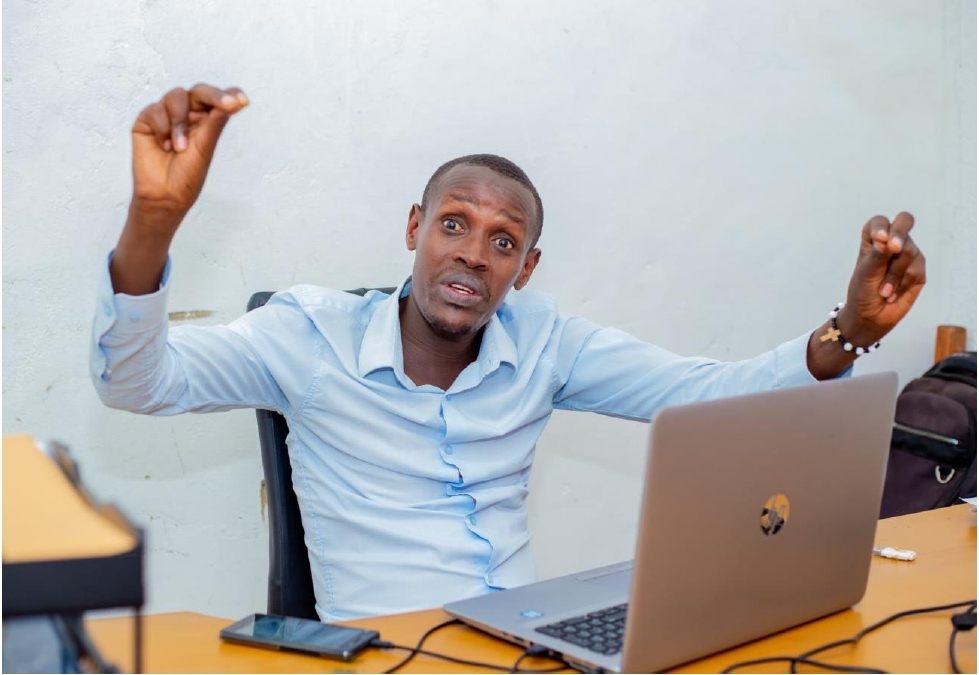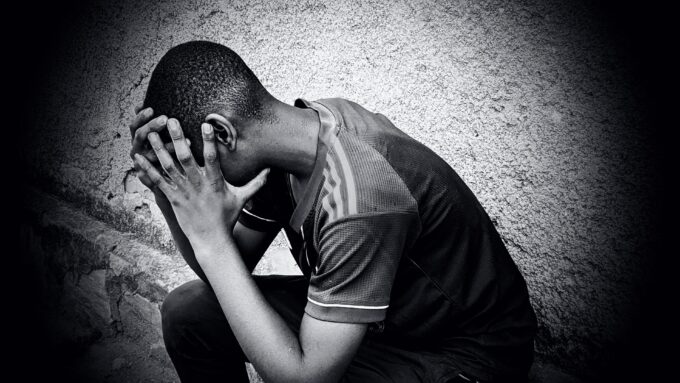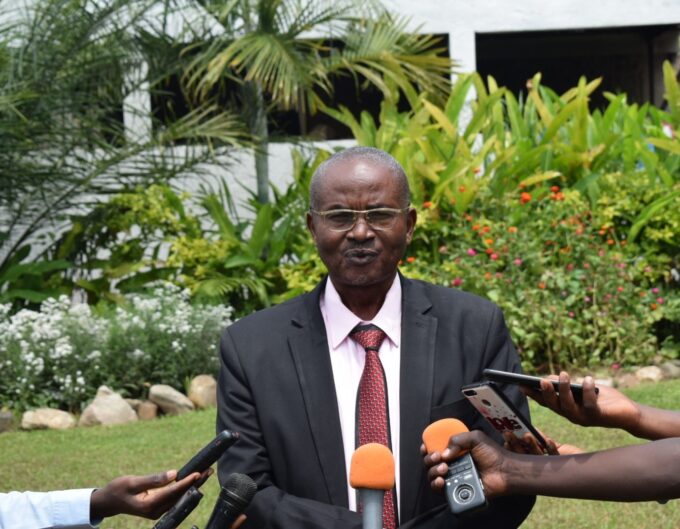In Burundi, rising poverty and unemployment have created fertile ground for betting addiction among the country’s youth. Gambling has become a tempting escape for many desperate to secure financial stability. However, for most, this pursuit leads to a cycle of dependency and despair rather than the financial salvation they seek.
Claude N., a recent university graduate from Ngozi Province in northern Burundi, exemplifies this struggle. Since earning his degree in 2020, Claude has been unable to find stable employment. To survive, he turned to betting. “At first, betting felt like a way out,” Claude says. “Now, it’s the only way I can make ends meet.”
For individuals like Claude, gambling companies offer the illusion of a quick fix to financial problems. Yet the initial hope quickly fades as addiction sets in, trapping many in a relentless pursuit of elusive winnings.
Alexis Nimubona, a spokesperson for the anti-corruption watchdog OLUCOME, highlights Burundi’s persistent economic challenges as a driving factor. “Unemployed graduates, school dropouts, and children facing hunger—these are the issues that lead young people to turn to gambling as a last resort,” Nimubona says.
In a society where financial security is increasingly out of reach, betting companies present themselves as beacons of hope. However, their role in promoting addiction carries significant implications for the future of Burundi’s youth.
Social Media and Celebrity Influence

The appeal of gambling is amplified by social media and celebrity endorsements. Influencers, artists, and actors in Burundi frequently promote betting companies to their large audiences, portraying gambling as an easy and glamorous route to wealth.
“Almost every influencer has a gambling promo code,” says a young man who requested anonymity. “Even if they don’t, their influence draws young people in.”
Billboards and banners featuring these influencers dominate public spaces, lending an air of legitimacy to gambling companies. “When the government allows these ads, it sends a message that these companies are credible,” argues Abel Nshimirimana, a psychology lecturer at Burundi National University. “This endorsement imbues gambling with a respectability it does not deserve.”
The consequences of gambling addiction are especially dire for adolescents. Sixteen-year-old Mechack says he began betting at 13, borrowing friends’ mobile phones to place bets. Over time, he resorted to petty theft to sustain his habit.
“Whenever I see money at home, I take it for betting,” he confesses, adding that his parents are unaware of his gambling activities.
For high school student Idrissa N., gambling has disrupted his education. “These games ruined my education,” he says. “I had to repeat two school years, and sometimes I skip class to go to betting houses.”
Teachers also report declining academic performance among students who gamble, particularly during international football seasons. “When the season of international matches overlaps with exam time, we notice a shift in students’ results,” says a high school principal in northern Burundi.
Beyond financial and academic losses, gambling also takes a toll on mental health. “I can’t sleep, and I feel stressed all the time,” Idrissa says. Nshimirimana explains that gambling addiction is rooted in brain chemistry: “Even a single win can trigger a release of neurotransmitters that create a compulsion to continue gambling. This pattern becomes compulsive, leading young people to chase the shadow of non-existent money.”
Government’s Limited Response

Despite the growing crisis, the government has primarily focused on regulating the gambling industry to boost revenue, rather than addressing underlying social issues.
In July 2023, the government introduced the Strategy for the Control and Regulation of Gambling (SCRJH), aiming to “ensure that these games can contribute to the socio-economic development of the country.” Critics argue the strategy prioritizes revenue over addiction prevention.
Léa Ngabire, Director General of Burundi’s National Lottery (LONA), acknowledges inequities in the industry and a lack of legal oversight. Earlier this year, the government partnered with N-Soft, a digital oversight provider, to enhance revenue collection. “The implementation of N-Soft’s technological governance solutions to oversee the gambling sector in Burundi is a key step in our revenue mobilization strategy,” Ngabire said, according to the online media company Africa.com.
Advocates urge immediate intervention. David Ninganza, a children’s rights advocate, calls for collaboration between the ministries of education and communication to raise awareness about the dangers of gambling. “The government needs to inform families about responsible behavior and the risks of gambling,” Ninganza says.
Other activists, like Alexis Nimubona, recommend establishing a commission to study the social and economic impacts of gambling. The commission could propose age restrictions, time limits, and increased taxes on betting companies to mitigate the adverse effects.
“Raising taxes on betting companies could help reduce participation and curb gambling dependency among the youth,” suggests Nshimirimana.
Addressing the Root Causes

Experts agree that tackling poverty, unemployment, and lack of opportunities is critical. Investing in economic reforms and educational initiatives can provide sustainable pathways for youth, reducing their reliance on gambling.
Online platforms like Rehubs, which support victims of gambling addiction, warn that gambling can harm mental health, strain relationships with loved ones, and impact physical well-being. “Gambling can not only destroy your finances but also play a vital role in destroying your life and those around you,” Rehubs warns.
While recovery is possible with support, preventative measures are essential to curb the growing crisis. If left unaddressed, gambling addiction could rob an entire generation of its potential.
The government is revising laws to regulate the industry. Onésime Niyukuri, spokesperson for the Burundian Ministry of Trade, emphasized the need for stricter regulations. “Some guiding laws are being reviewed to be applied in this gambling trade to ensure it is regulated,” Niyukuri said. However, he could not provide a timeline for their implementation.
As gambling companies proliferate, the government must balance revenue generation with safeguarding its youth. Viable alternatives, such as job opportunities and educational initiatives, can help young people break free from the cycle of addiction and build a future rooted in real opportunities.
Ultimately, fighting gambling addiction requires a multi-pronged approach: regulation, awareness campaigns, and economic reform. Only then can Burundi protect its youth from the allure of a gamble that, for most, will never pay off.







Leave a comment